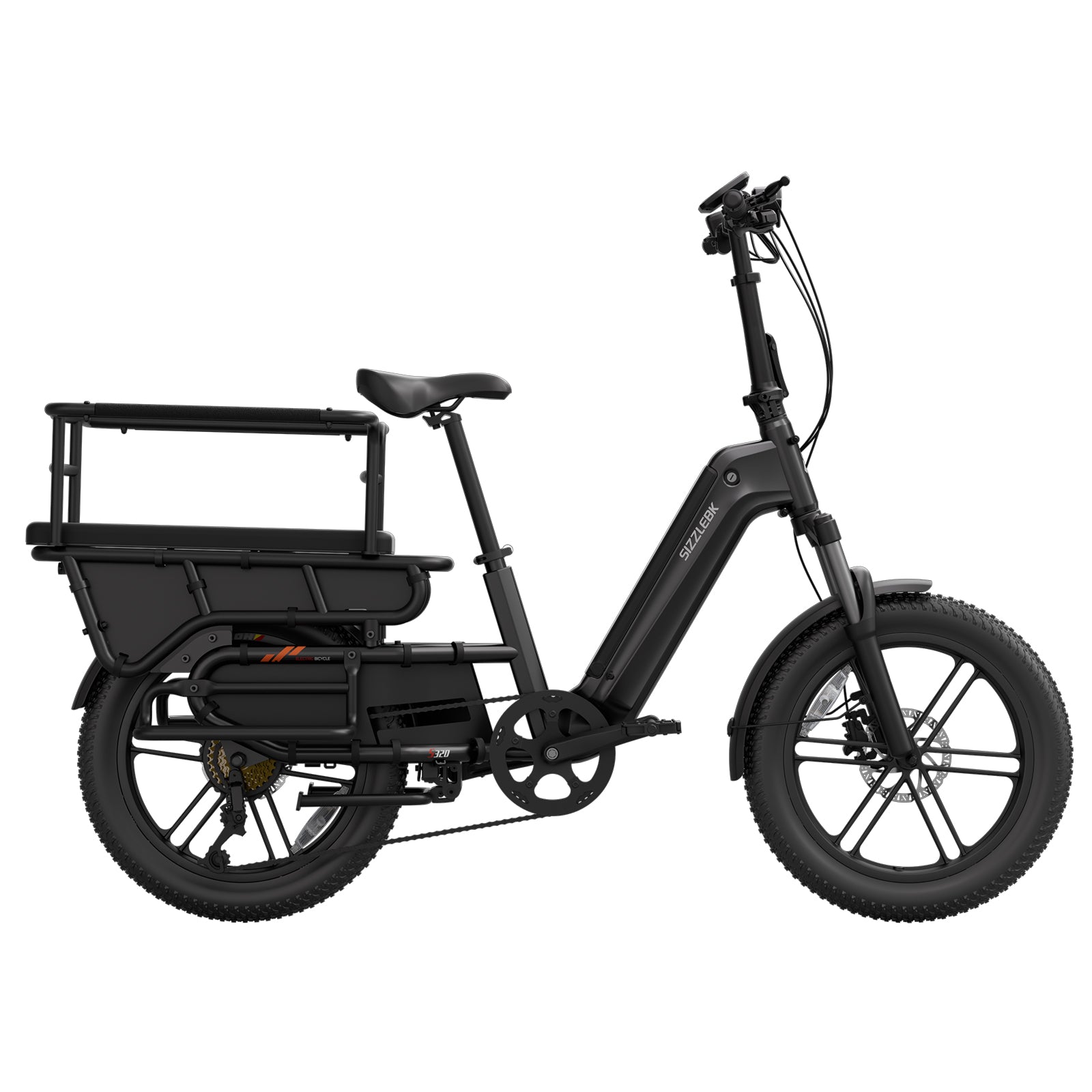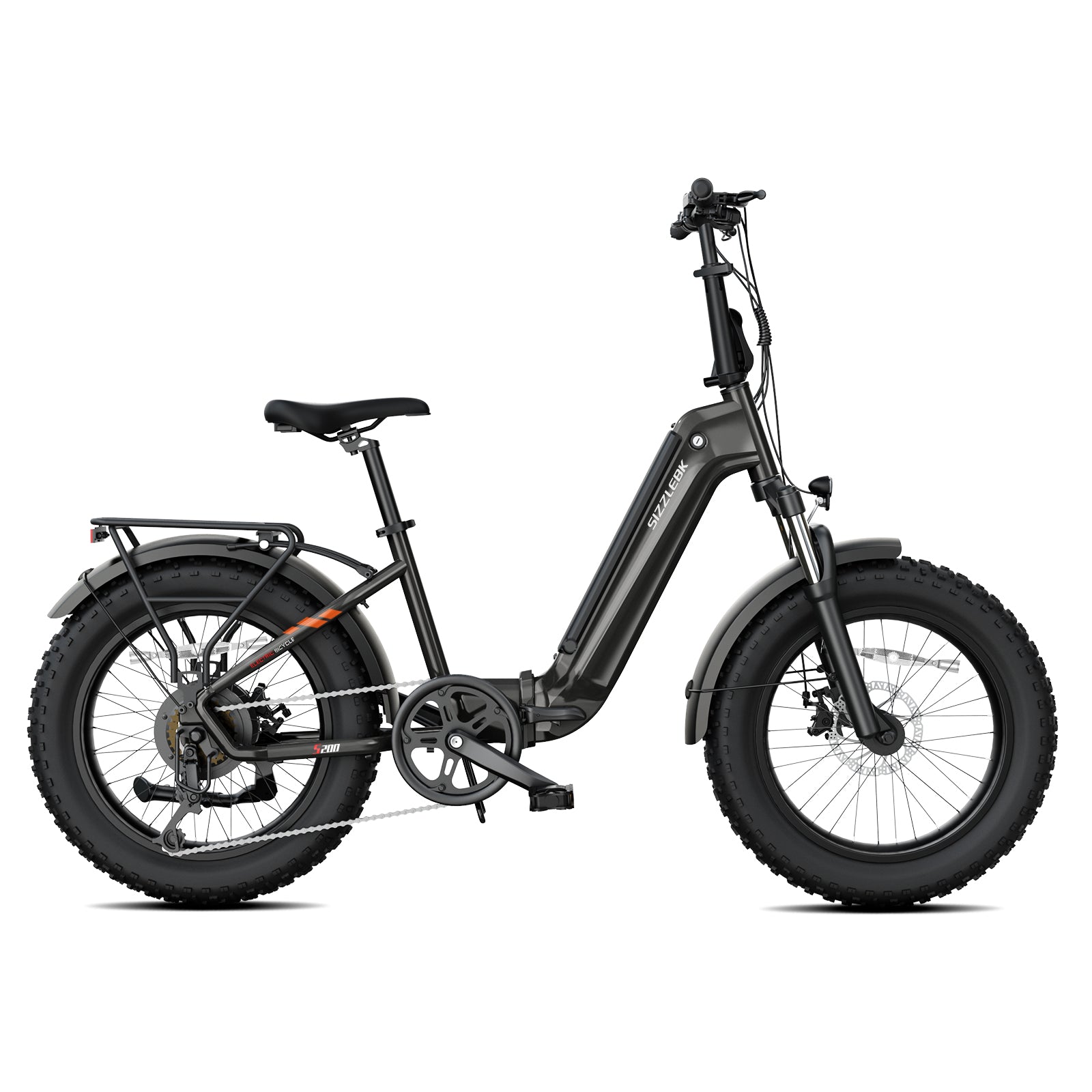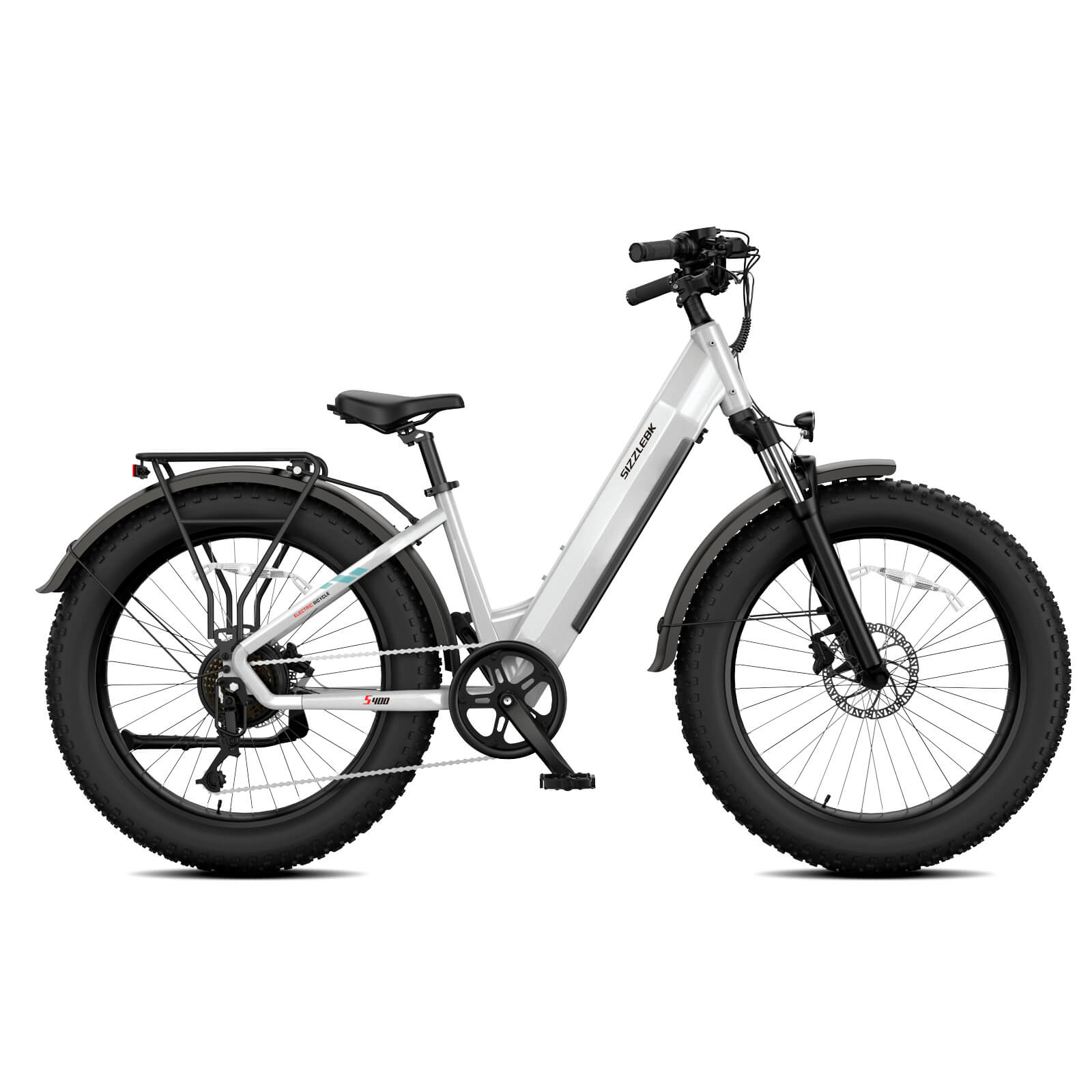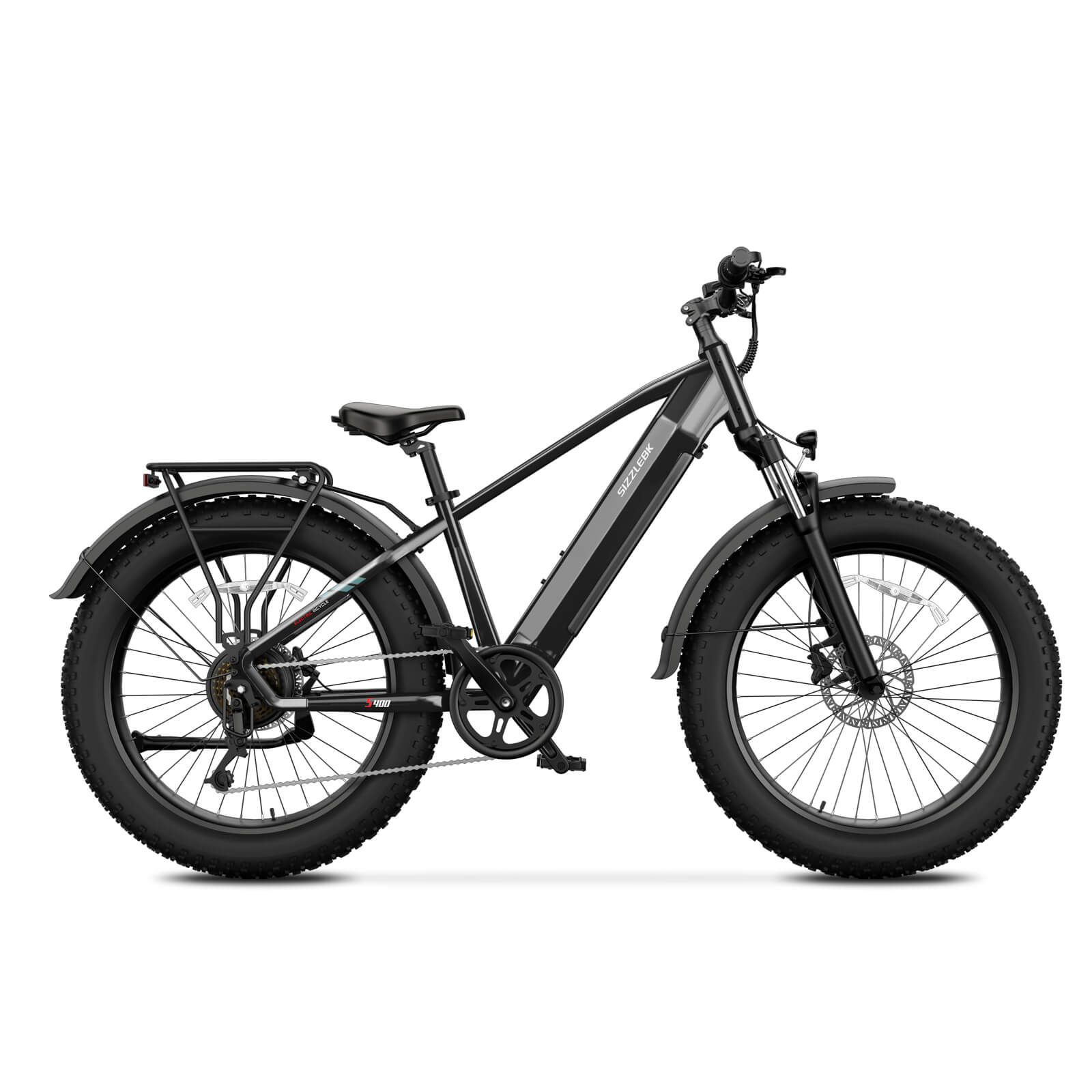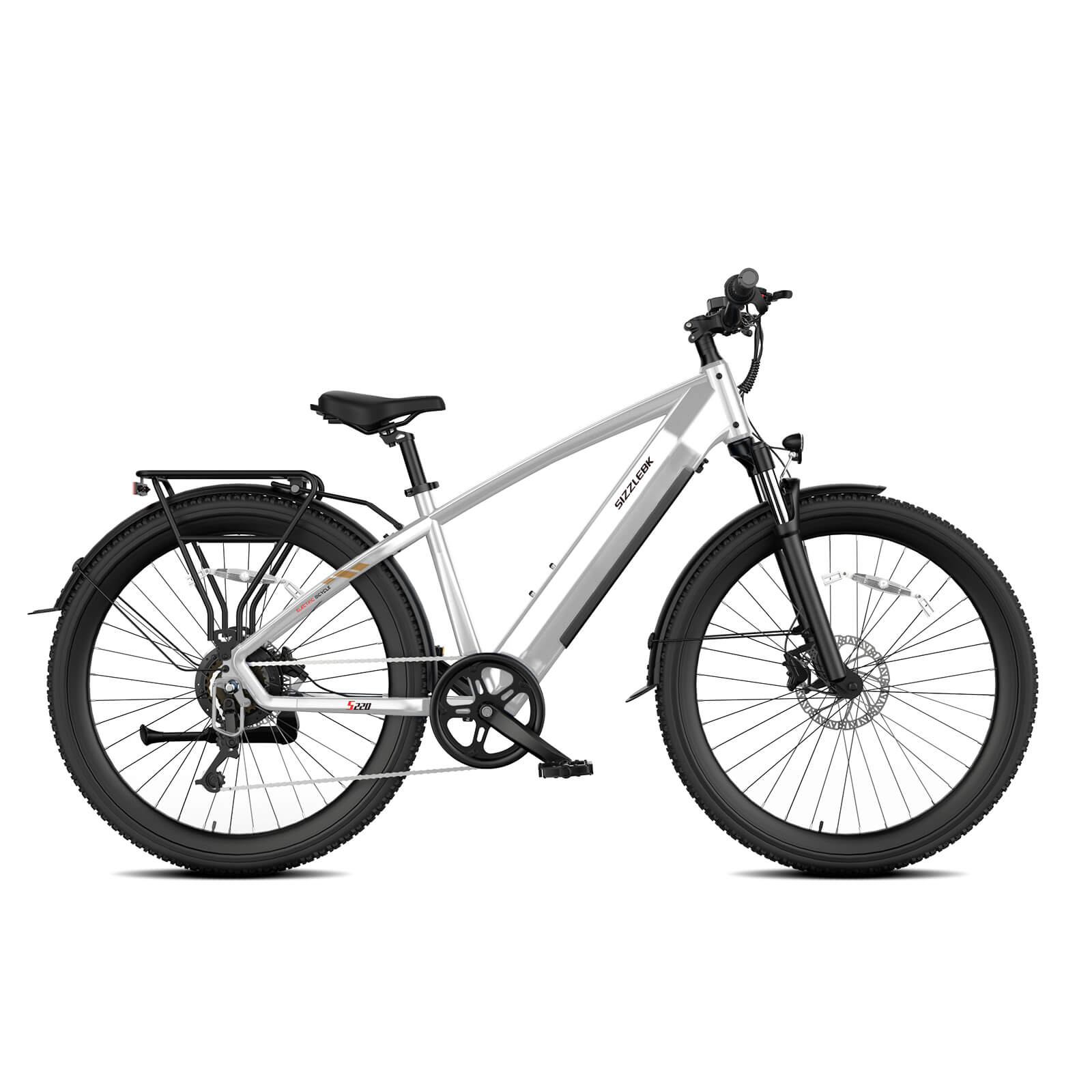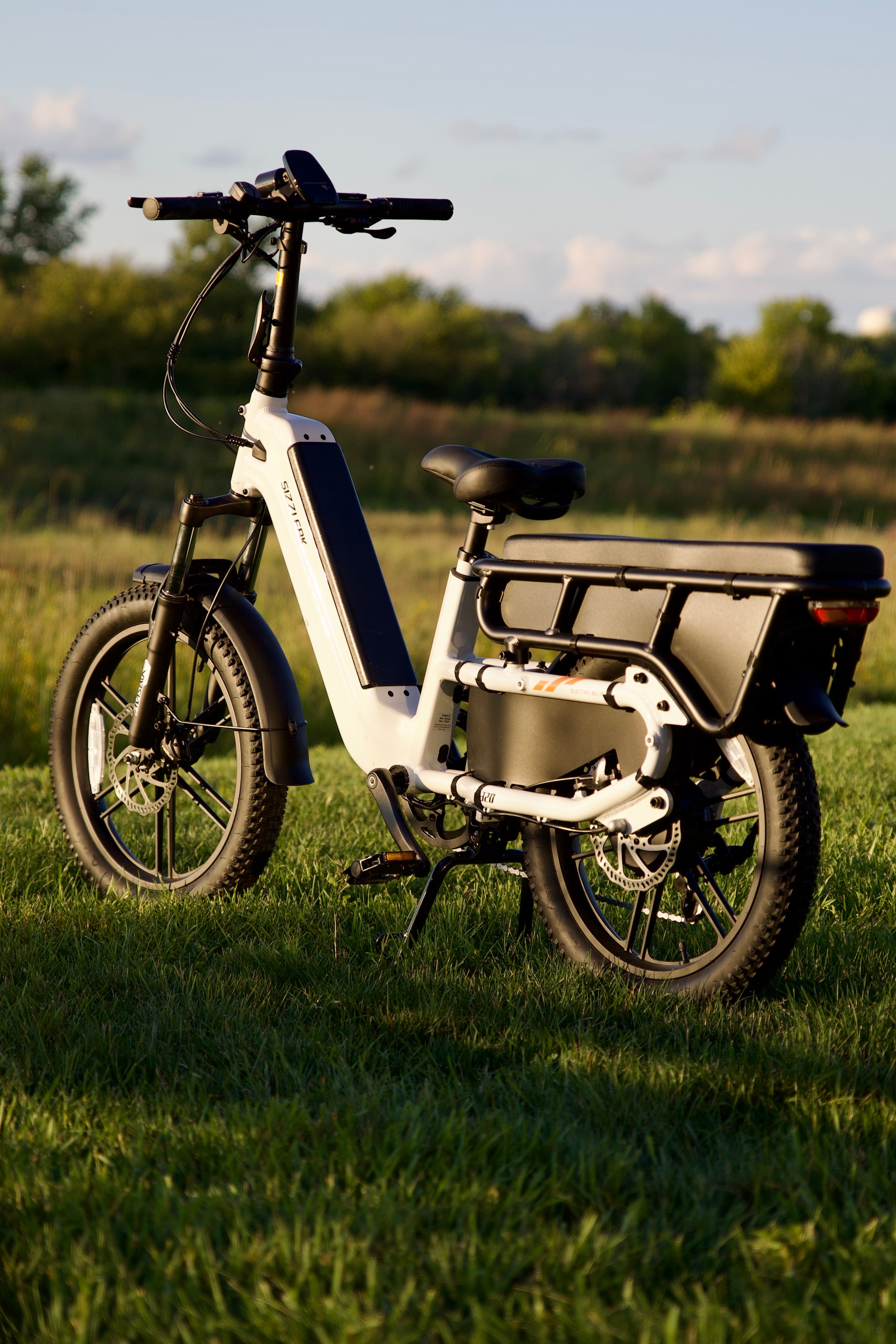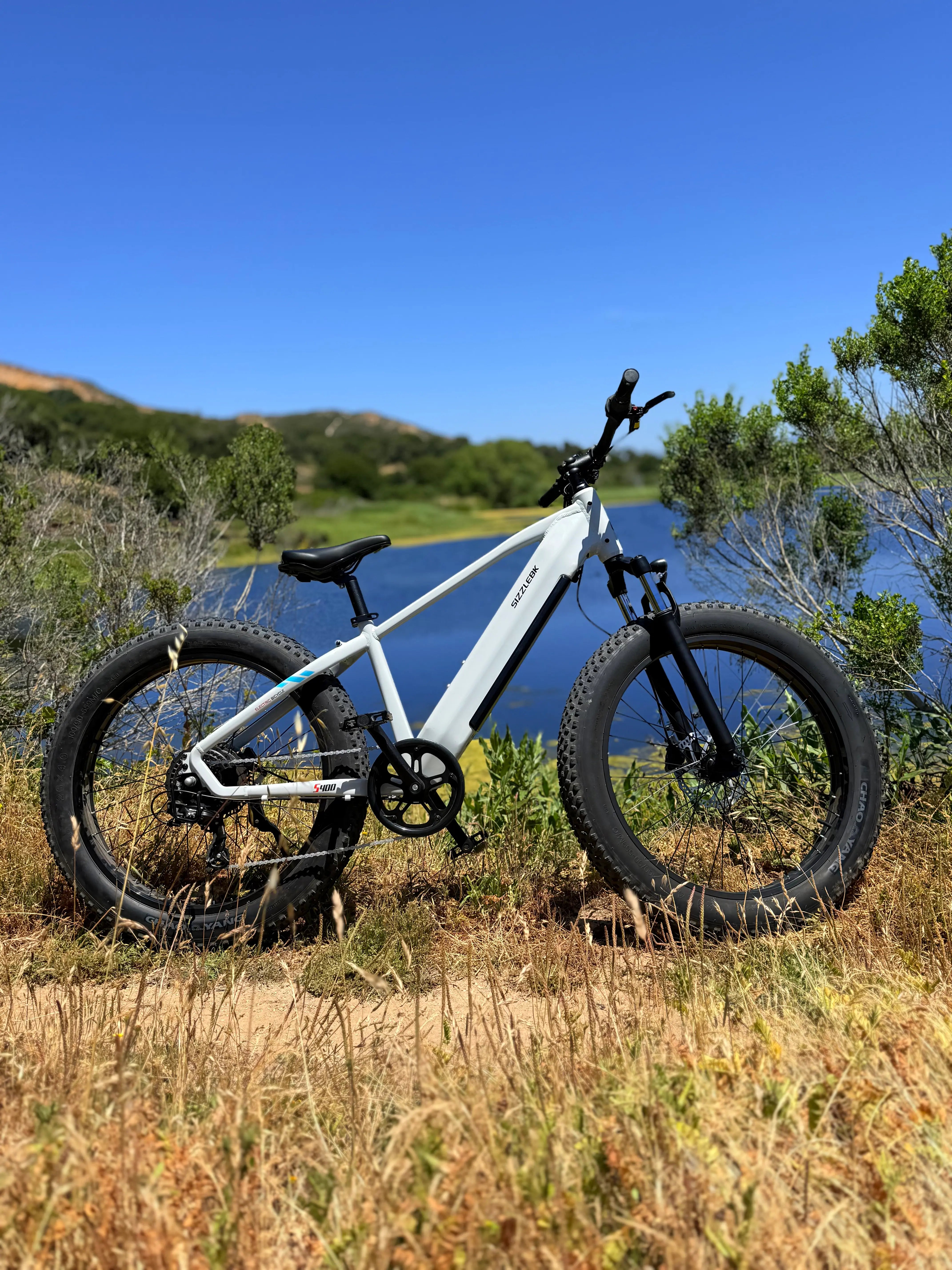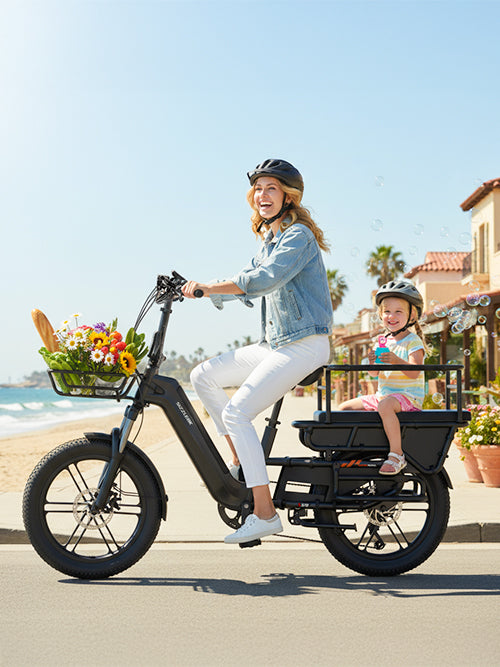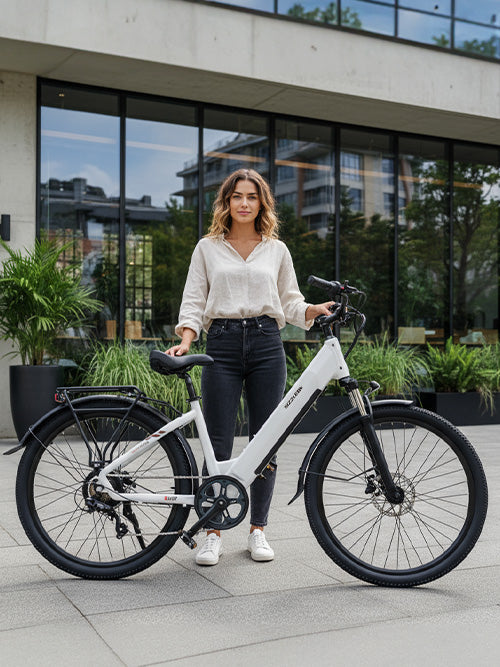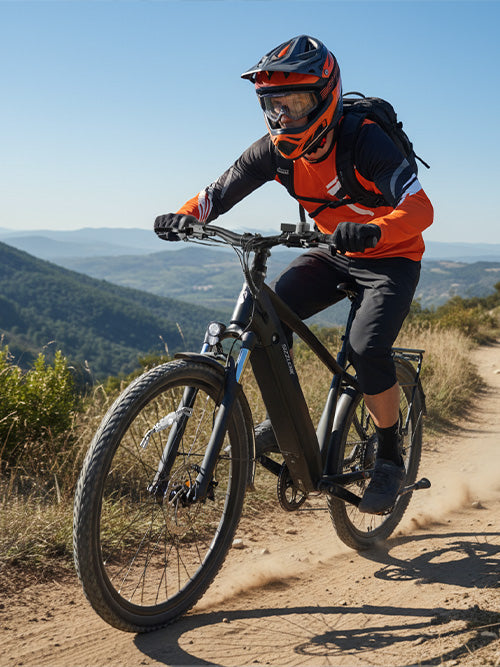In recent years, electric delivery bikes have become a game-changer in the world of logistics. These two-wheeled wonders offer a sustainable and efficient alternative to traditional delivery methods, particularly in crowded urban environments. From delivering food to transporting packages, electric delivery bikes are changing the way goods are moved from point A to point B. As cities become more congested and the demand for quick deliveries rises, these innovative bikes are meeting the needs of businesses and consumers alike.
The Rise of Electric Delivery Bikes
Electric bikes, commonly referred to as e-bikes, are bicycles equipped with an integrated electric motor used for propulsion. While e-bikes have been around for a while, their use in the logistics sector has surged, especially with the rise of online shopping and food delivery services. This growth is fueled by technological advancements and the increasing awareness of environmental issues.
Evolution of E-Bikes in Logistics
The journey of e-bikes from recreational use to logistics tools is fascinating. Initially, e-bikes were primarily used for personal transportation and leisure. However, as battery technology improved and motors became more efficient, businesses began to see their potential for deliveries. The shift was gradual but gained momentum as cities started to implement stricter emissions regulations.
The Role of Online Shopping
Online shopping has transformed the logistics landscape, creating a demand for more flexible and faster delivery solutions. E-bikes have emerged as an ideal solution for last-mile deliveries, where traditional vehicles face challenges. The ability to weave through traffic and access hard-to-reach areas makes e-bikes particularly valuable for delivering parcels and packages in urban settings.
Urbanization and the Need for Adaptation
With more people moving to cities, urban areas have become increasingly congested. Traditional delivery vehicles often struggle with traffic and parking, leading to delays and inefficiencies. E-bikes provide a way to navigate these challenges, offering a nimble and effective solution that aligns with the growing trend of urbanization. As cities expand, the need for adaptable delivery methods like e-bikes will only increase.
Why Choose Electric Bikes for Delivery?
There are several compelling reasons why businesses are opting for electric bikes over traditional delivery vehicles. The benefits extend beyond the obvious environmental advantages and touch on economic and logistical factors that can significantly impact business operations.
Eco-Friendly: A Sustainable Choice
Electric bikes produce zero emissions, making them an environmentally friendly choice compared to gas-powered vehicles. This is particularly important as cities aim to reduce their carbon footprints. The shift towards e-bikes aligns with global efforts to combat climate change and promote sustainable urban living. By reducing reliance on fossil fuels, companies can contribute to a cleaner environment.
Cost-Effective: Lowering Operational Expenses
The cost of maintaining and running electric bikes is significantly lower than that of cars or vans. There's no need to spend on fuel, and maintenance is minimal. This cost-effectiveness translates to higher profit margins for businesses, especially those operating on tight budgets. Additionally, e-bikes often have lower insurance costs, further reducing financial burdens.
Maneuverability: Navigating Urban Challenges
In congested city streets, electric bikes can easily navigate through traffic, often reaching destinations faster than cars stuck in gridlock. Their compact size allows them to take shortcuts and avoid the delays that plague larger vehicles. This maneuverability not only speeds up delivery times but also enhances the reliability of service, leading to satisfied customers.
Accessibility: Reaching Every Corner
Bikes can access areas that are off-limits to larger vehicles, including pedestrian zones and narrow alleys, expanding delivery reach. This accessibility is crucial in urban areas with restricted zones and limited parking. E-bikes can cover the last mile efficiently, ensuring that deliveries reach their destinations without unnecessary detours or delays.
Electric Cargo Bikes: A New Dimension in Logistics
Electric cargo bikes take the concept of e-bikes a step further by providing extra space and capacity for larger loads. These bikes are designed with cargo-carrying capabilities, making them ideal for transporting goods of various sizes. As businesses look for versatile delivery solutions, electric cargo bikes are becoming an integral part of the logistics ecosystem.
Enhanced Load Capacity: Meeting Diverse Needs
With reinforced frames and larger storage areas, cargo bikes can carry substantial weights, ranging from groceries to bulky packages. This enhanced load capacity allows businesses to consolidate deliveries, reducing the number of trips required. The ability to transport larger volumes makes cargo bikes suitable for a wide range of industries, from retail to hospitality.
Stability and Safety: Prioritizing Rider and Cargo
Despite their larger size, these bikes are designed for stability and often come with features such as wider tires and enhanced braking systems to ensure safety during transit. The focus on safety extends to both the rider and the cargo, with designs that minimize the risk of accidents. This emphasis on stability is crucial for maintaining the integrity of goods during delivery.
Customizability: Tailoring to Business Requirements
Businesses can customize cargo bikes with branding, additional storage solutions, or even temperature-controlled compartments for perishable goods. This customizability allows companies to tailor their delivery solutions to specific needs, enhancing operational efficiency. Whether it's branding for marketing purposes or specialized compartments for sensitive items, cargo bikes offer flexibility.
The Impact on the Food Delivery Industry
The food delivery industry has been one of the biggest beneficiaries of the electric bike revolution. With the increasing demand for quick and efficient delivery, electric bikes offer a perfect solution for food delivery services looking to improve efficiency and sustainability. The integration of e-bikes in food delivery is reshaping the industry, offering advantages that extend beyond simple logistics.
Speed and Efficiency: Meeting Customer Expectations
Electric bikes allow delivery personnel to zip through traffic and deliver orders promptly, ensuring customer satisfaction. The ability to maintain consistent delivery times even during peak hours is a significant advantage. As customers increasingly demand faster service, e-bikes enable food delivery businesses to meet and exceed expectations.
Reduced Operational Costs: Enhancing Profitability
Lower fuel and maintenance costs mean that food delivery services can operate more profitably. The savings on operational expenses can be reinvested into other areas, such as marketing or employee development. By reducing costs, companies can offer competitive pricing and expand their market share, all while maintaining profitability.
Employee Satisfaction: Improving Work Conditions
Riding an electric bike is less physically demanding than traditional cycling, reducing fatigue and improving job satisfaction among delivery personnel. The ease of use and reduced physical strain contribute to a more positive work environment. Happy employees are more likely to provide excellent service, leading to better customer experiences and higher retention rates.
Environmental Responsibility: Aligning with Consumer Values
As consumers become more environmentally conscious, businesses that demonstrate a commitment to sustainability are more likely to gain favor. Electric bikes align with the values of eco-conscious consumers, enhancing brand reputation. By adopting green delivery methods, food delivery services can attract environmentally aware customers and build loyalty.
Case Studies: Successful Integration of Electric Delivery Bikes
Several companies have successfully integrated electric delivery bikes into their logistics operations, reaping significant benefits. These case studies highlight the diverse applications of e-bikes and the positive outcomes businesses can achieve by embracing this technology.
Example 1: A Major Pizza Chain
A well-known pizza chain in New York City adopted electric delivery bikes to cope with the high volume of orders during peak hours. The result was faster delivery times and happier customers. Additionally, the switch to electric bikes aligned with their sustainability goals, further enhancing their brand image. The chain reported increased customer satisfaction and a notable improvement in delivery efficiency.
Example 2: Urban Package Delivery Service
A package delivery service in San Francisco replaced a portion of their van fleet with electric cargo bikes. This move not only reduced their carbon footprint but also allowed them to access areas with strict vehicle restrictions. The service saw a reduction in delivery times and improved customer feedback. The transition also highlighted the company's commitment to innovation and environmental responsibility.
Example 3: Grocery Delivery Startup
A startup focused on grocery delivery incorporated electric cargo bikes to manage their urban deliveries. By using e-bikes, the startup was able to offer same-day delivery services at a competitive price. The efficiency and cost-effectiveness of e-bikes played a crucial role in the startup's rapid growth and customer acquisition. The move also aligned with their mission to provide sustainable delivery options.
The Future of Logistics with Electric Bikes
The adoption of electric delivery bikes is expected to grow as more businesses recognize their benefits. With advancements in battery technology and bike design, the capabilities of electric bikes will continue to expand, further solidifying their role in modern logistics. The future holds exciting possibilities for e-bikes, as innovation drives their evolution.
Innovations on the Horizon: Transforming Capabilities
Ongoing improvements in battery technology promise longer ranges, allowing delivery bikes to cover more ground without recharging. These advancements will enhance the practicality of e-bikes for longer routes and diverse delivery needs. As battery efficiency increases, the overall cost of operating e-bikes will decrease, making them even more attractive to businesses.
Smart Technology Integration: Enhancing Efficiency
Future electric bikes may come equipped with GPS, route optimization software, and real-time tracking to enhance delivery efficiency. The integration of smart technology will allow for more precise route planning and improved communication between dispatch centers and riders. These innovations will streamline operations and provide valuable data for continuous improvement.
Increased Payload Capacity: Expanding Possibilities
As design innovations continue, electric cargo bikes will likely be able to handle even larger loads, making them suitable for a wider range of delivery needs. The ability to transport heavier and more diverse cargo will expand the potential applications of e-bikes, opening new markets and opportunities. This evolution will drive further adoption across various sectors.
Policy and Infrastructure Support: Encouraging Growth
Governments and city planners are increasingly recognizing the benefits of e-bikes and are implementing policies to support their growth. Investments in bike-friendly infrastructure, such as dedicated lanes and charging stations, will facilitate the widespread use of e-bikes. These supportive measures will create an environment conducive to the continued expansion of electric delivery bikes.
Conclusion
Electric delivery bikes are revolutionizing the logistics industry by offering a sustainable, efficient, and cost-effective alternative to traditional delivery vehicles. Whether it's delivering food or transporting packages, these bikes are paving the way for a greener and more efficient future in logistics. As technology continues to advance, the potential for electric delivery bikes will only grow, making them an indispensable tool in the modern delivery landscape. The ongoing innovation and increasing adoption of e-bikes promise to reshape logistics, creating a more sustainable and responsive industry.
1. Why are electric delivery bikes better than traditional delivery vehicles?
Electric delivery bikes produce zero emissions, lower operational costs, and can navigate congested city streets more efficiently than traditional cars or vans.
2. Can electric cargo bikes carry heavy loads for business deliveries?
Yes, electric cargo bikes are designed with reinforced frames and large storage compartments, making them ideal for transporting groceries, packages, and bulky items.
3. Are electric bikes suitable for food delivery services?
Absolutely. Electric bikes enable faster deliveries, reduce operational costs, and help food delivery businesses meet sustainability goals while ensuring customer satisfaction.
4. How far can electric delivery bikes travel on a single charge?
With advancements in battery technology, most electric delivery bikes can cover 30–60 miles on a single charge, depending on load weight and terrain.
5. What kind of maintenance do electric delivery bikes require?
Electric delivery bikes require minimal maintenance—mainly battery care, tire checks, and occasional brake adjustments, making them cost-effective for daily operations.
